Tag Archive for: bladder cancer
What Do You Need To Know About Bladder Cancer?
What Do You Need To Know About Bladder Cancer? from Patient Empowerment Network on Vimeo.
What should you or your loved ones know following a bladder cancer diagnosis? This animated video reviews the diagnosis and types of bladder cancer, current treatment options, and key advice for taking an active role in your care.
See More From The Pro-Active Bladder Cancer Patient Toolkit
Related Programs:

|

|

|
Transcript:
What do you need to know if you or a loved one has been diagnosed with bladder cancer?
Bladder cancer occurs when cells in the urinary bladder grow out of control. As more cancer cells develop, they can form a tumor. And, over time, may spread to other parts of the body.
The most common type of bladder cancer is transitional cell carcinoma or T.C.C.. This may also be referred to as urothelial carcinoma. Other subtypes include: Squamous cell carcinoma, adenocarcinoma, small cell bladder cancer and, sarcomatoid carcinoma.
How bladder cancer is treated depends on the stage. The stages of bladder cancer include: Stage 1, which indicates that the cancer is growing in the inner lining layer of the bladder only. Stage 2 occurs when the cancer is growing into the inner or outer muscle layer of the bladder wall. Stage 3 means that the cancer has grown beyond the muscle layer and into fatty tissue that surrounds the bladder. And, Stage 4 indicates that the cancer is growing outside of the pelvic region and has spread to distant sites, such as the lung, liver, or bones. When cancer has spread to other organs in the body, it is considered metastatic cancer.
When making a treatment choice, your doctor may also consider age, any comorbidities, potential side effects, and the results of biomarker testing, as well as that patient’s preference.
So, what are the treatment options for bladder cancer? For early stage, or non-muscle-invasive, bladder cancer patients, doctors may use a form of immunotherapy instilled in the bladder called B.C.G. which stands for Bacillus Calmette-Guerin. B.C.G. is used to inhibit the cancer’s growth and prevent recurrence.
If patients do not respond or recur after B.C.G., a radical cystectomy – a surgical procedure to remove the bladder, is offered. In select patients, pembrolizumab, a form of immunotherapy, can be used as an alternative.
For localized bladder cancer invading the muscle, treatment is typically chemotherapy, followed by surgery. Tri-modality treatment using chemotherapy along with radiation is an option for patients who are not candidates for surgery – or refuse surgery – and who meet criteria for bladder preservation.
Surgery, including a urostomy where the bladder is removed and replaced with a stoma outside of their bodies, is a major procedure reserved for patients who are very fit with low comorbidities.
Now that you understand a little more about your bladder cancer and treatment options, how can you take an active role in your care?
First, continue to educate yourself about your condition. Ask your doctor for patient resources or visit powerfulpatients.org/bladdercancer for more information.
Understand the goals of your treatment and ask whether a clinical trial might be right for you.
You should also consider a second opinion or consult with a specialist following a diagnosis.
Try to write down your questions before and during your appointments. And bring a friend or loved one to your appointments to help you recall information and to keep track of important details.
Finally, remember that you have a voice in your care. Don’t hesitate to ask questions and to share your concerns. You are your own best advocate.
To learn more about bladder cancer and to access tools for self-advocacy, visit powerfulpatients.org/bladdercancer.
Expert Update: Bladder Cancer Treatment & Research News
Expert Update: Bladder Cancer Treatment & Research News from Patient Empowerment Network on Vimeo.
Dr. Fern Anari reviews highlights from the ASCO 2022 meeting and shares her expert perspective on the future of bladder cancer treatment.
Dr. Fern M. Anari is a genitourinary medical oncologist and assistant professor in the department of hematology/oncology at Fox Chase Cancer Center. Learn more about Dr. Anari, here.
See More From The Pro-Active Bladder Cancer Patient Toolkit
Related Programs:

|
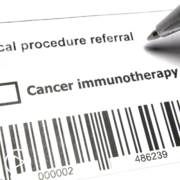
|

|
Transcript:
Katherine Banwell:
Dr. Anari, cancer researchers recently came together for the 2022 ASCO meeting. Were there any highlights from that meeting that bladder cancer patients should know about?
Dr. Anari:
Yes. So, our annual meetings are always a really exciting time to learn about and share the results of really cutting-edge research that’s been going on. And this year at ASCO 2022, I think there were several standout studies for various stages of bladder cancer.
So, in patients with localized bladder cancer, again, similarly to what we discussed with immunotherapy and what we call BCG unresponsive bladder cancer, they looked at combining BCG with another new drug. And what they found is that the cancer shrunk down completely in over two-thirds of cases.
And those responses tend to last over two years of follow-up. The drug was shown to be safe and tolerable. So, I think that’s a really exciting potential future treatment for people. There was another study that looked at a targeted treatment called enfortumab vedotin, which is typically used in the metastatic setting after someone’s received chemotherapy and/or immunotherapy. They looked at using that before surgery in localized muscle-invasive bladder cancer.
The reason it’s important to look at drugs like this is because the standard of care right now is to give cisplatin-based chemotherapy before surgery to remove the bladder.
But not everyone is eligible to get that cisplatin drug for various reasons. So, the current standard of care is to just go straight to surgery. But we know that by giving some form of a chemotherapy before, that helps increase cure rates.
And what they actually found in this study looking at enfortumab vedotin is that they were able to shrink down cancer completely, meaning at the time of surgery there was no cancer left in the bladder 36% of the time, which is actually on par with our standard of care treatment that we use today.
So, I think this also shows a lot of promise in patients who historically would need to go straight to surgery without any preoperative treatment. And then, lastly, HER2 is a type of targeted therapy as well that’s most commonly known in the breast cancer treatment world. But it’s also been looked at in bladder cancer.
And there’s a new drug that’s being studied that really strongly targets HER2, which is expressed on some bladder cancer cells. So, they’re looking at this new drug in combination with immunotherapy, which is already approved in bladder cancer. And, again, I think this is another really promising combination for patients who’ve already received other treatments for their bladder cancer.
Katherine Banwell:
It sounds like a lot of progress is being made in the field. What are you excited about when it comes to bladder cancer research?
Dr. Anari:
I think what excites me the most is being able to offer patients both the standard treatment options where, really, the clinical trials of yesterday are our standard treatments today. So, I’m excited to be able to offer them the standard treatment but also give them the background of why that’s approved and why we use it but also give them the hope that we have these really promising drugs.
And, luckily, at our cancer center, we have access to a lot of these before they’re approved by the FDA. So, it’s really exciting to be able to offer this cutting-edge research in the form of treatments to our patients.
How Does Immunotherapy Treat Bladder Cancer?
How Does Immunotherapy Treat Bladder Cancer? from Patient Empowerment Network on Vimeo.
Dr. Fern Anari from Fox Chase Cancer Center explains immunotherapy and how this therapy works to treat bladder cancer. Dr. Anari also discusses the importance of communicating how you’re feeling with your healthcare team.
Dr. Fern M. Anari is a genitourinary medical oncologist and assistant professor in the Department of Hematology/Oncology at Fox Chase Cancer Center. Learn more about Dr. Anari, here.
See More From The Pro-Active Bladder Cancer Patient Toolkit
Related Programs:

|

|

|
Transcript:
Katherine Banwell:
What is immunotherapy and how does it work to treat bladder cancer?
Dr. Anari:
So, immunotherapy, the analogy that I often use when I see patients is immunotherapy goes in by IV, and it acts as the drill sergeant. And it trains your own body’s immune system or the soldiers to find and fight the cancer cells. So, that’s really how it really works. The drug itself is training your own body to do the work.
Most people will have no side effects from this. And they tolerate it really well. However, because the immune system is getting a little bit activated, sometimes those soldiers or your immune cells can go rogue. And they can start attacking normal healthy tissue in the body, almost like an autoimmune disease.
So, when on these drugs, it’s really important if anything is new or different to let your doctors know, because it’s often easy to troubleshoot over the phone or at a quick office visit if it’s related to immunotherapy or not. So, it’s really important that you keep that in mind whenever a new symptom or anything may pop up.
Katherine Banwell:
That’s great information – it’s really important to communicate any issues you may be having. So, who is immunotherapy right for? Is it right for every bladder cancer patient?
Dr. Anari:
So, immunotherapy is used in several different settings for bladder cancer treatment. It’s used in the metastatic bladder cancer treatment world mostly. Often, we use it as either a second-line treatment after chemotherapy or in a maintenance-type approach after someone’s completed their chemotherapy, meaning we plan for about two years of treatment. And patients that can’t get chemotherapy for whatever reason we can use immunotherapy as a first-line treatment.
And it’s also used in localized bladder cancer meaning cancer that’s contained only to the lining of the bladder in patients who’ve gotten treatments that go inside the bladder called BCG. When their cancer isn’t responding, immunotherapy is also an option there.
Katherine Banwell:
And what might be some of those side effects that patients should look out for?
Dr. Anari:
So, what I tell everyone is they can get inflammation or an “itis” of anything. So, some examples of that: If someone has a rash, that’s called dermatitis. That can be mild, or it can be severe. If someone has inflammation of the bowels or colitis, they can have diarrhea that starts all of a sudden.
Another example is pneumonitis or inflammation of the lungs. People may have cough, trouble breathing, low oxygen levels. It really can affect any organ system that you have. So, that’s why it’s really important if something feels different to let your doctors know.
It’s also really important if you’re not near your doctor for whatever reason and you end up seeing a local doctor, let’s say, at an emergency room that you let them know that you’ve received immunotherapy because they’ll think about the problems that you’re having a little bit differently.
How Does Targeted Therapy Treat Bladder Cancer?
How Does Targeted Therapy Treat Bladder Cancer? from Patient Empowerment Network on Vimeo.
Dr. Fern Anari, a bladder cancer specialist from Fox Chase Cancer Center, explains how targeted therapy works and which type of patient this therapy is most appropriate for.
Dr. Fern M. Anari is a genitourinary medical oncologist and assistant professor in the Department of Hematology/Oncology at Fox Chase Cancer Center. Learn more about Dr. Anari, here.
See More From The Pro-Active Bladder Cancer Patient Toolkit
Related Programs:
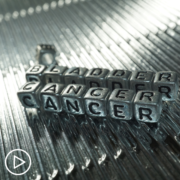
|

|

|
Transcript:
Katherine Banwell:
What is targeted therapy, and how does it work to treat bladder cancer?
Dr. Anari:
So, targeted therapy is really a newer, more tailored approach to treating certain types of bladder cancer. Targeted treatments because they’re targeted have most of their effect on the cancer cells. Although, obviously, there’s other potential side effects. But the way it works to treat bladder cancer really depends on the different types. There are several different targeted treatments out there.
Often, targeted treatments are approved for people after they’ve gotten chemotherapy and/or immunotherapy for their bladder cancer treatments. There are several different ones out there. Erdafitinib is one of them. It’s a pill. It’s approved for patients who have an FGFR alteration.
Well, what is that? It’s something that your doctor finds by getting the DNA or genetic makeup of your cancer cells. So, those pills are available to people with that certain alteration that’s found on special testing.
With these pills, potential side effects – we talked about how the effects are mostly on the cancer cells. But there are other side effects that we have to keep in mind. This drug in particular can have different eye disorders. So, we work closely with ophthalmologists.
And then we check blood work because people can have high phosphate levels in the blood. Phosphate levels can be controlled often with diet, sometimes with medications, and sometimes with just adjusting the dose of the pill itself.
Katherine Banwell:
You mentioned the FGFR genetic alteration. Should bladder cancer patients undergo molecular testing?
Dr. Anari:
So, the most common place where we do that is when people have metastatic bladder cancer. It’s a good idea to test the biopsy sample or bladder cancer sample that’s already been removed.
That way we get this information. While it doesn’t always change the up-front treatment for bladder cancer, it is really important to know really what tools in our toolbox we have for the treatment of bladder cancer.
Be Empowered in Your Care
Be Empowered in Your Care from Patient Empowerment Network on Vimeo.
When patients are empowered, they feel informed and confident when talking to their healthcare team about their care. Bladder cancer expert Dr. Fern Anari describes how she empowers her patients.
Dr. Fern M. Anari is a genitourinary medical oncologist and assistant professor in the department of hematology/oncology at Fox Chase Cancer Center. Learn more about Dr. Anari, here.
See More From The Pro-Active Bladder Cancer Patient Toolkit
Related Programs:

|

|

The Importance of Patient Self-Advocacy in Bladder Cancer Treatment |
Transcript:
Katherine Banwell:
When patients are empowered, they feel informed and confident when talking to their healthcare team about their care. As an oncologist treating bladder cancer, how do you empower your patients?
Dr. Anari:
There are great online references that will help. Often, doctors will tell their patients not to Google. But that’s not always the right thing. I just think you just have to provide them with the right resources. So, through our cancer center and through many cancer centers, there’s patient advocacy groups. There are support groups. So, those are great places to get information.
There’s also something called the Bladder Cancer Advocacy Network, which has great information for both physicians and for patients and really helps guide people through their journey and give them a little bit more information that then helps guide questions when they do see their doctors.
Why Should Bladder Cancer Patients See a Specialist?
Why Should Bladder Cancer Patients See a Specialist? from Patient Empowerment Network on Vimeo.
Dr. Fern Anari from Fox Chase Cancer Center reviews the benefits of seeing a specialist for a consultation following a bladder cancer diagnosis.
Dr. Fern M. Anari is a genitourinary medical oncologist and assistant professor in the Department of Hematology/Oncology at Fox Chase Cancer Center. Learn more about Dr. Anari, here.
See More From The Pro-Active Bladder Cancer Patient Toolkit
Related Programs:
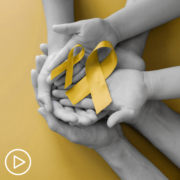
|

|

|
Transcript:
Katherine Banwell:
Why should patients consider seeing a bladder cancer specialist? And how can they find a specialist?
Dr. Anari:
So, I think, always, you can speak with your primary care doctor or your local urologist. They’ll know the bladder cancer specialist in the area. I think it’s important to see a bladder cancer specialist, because the field of oncology is always changing. So, you want to be treated by someone who really is the most up to date on treating bladder cancer.
Bladder cancer specialists may also have access to cutting-edge clinical trials, which you may be interested in. So, it’s nice to know what both the standard options are but also the clinical trial options to see what the best fit is for you.
Katherine Banwell:
What advice do you have for patients that may feel like they are hurting their doctor’s feelings by seeking a second opinion?
Dr. Anari:
So, if my patient is interested in getting a second opinion, I always encourage it. And I actually give them recommendations on people to see. I think very few providers will feel offended or upset by one of their patients requesting a second opinion. At the end of the day, each person’s cancer journey is different. And each person needs to feel comfortable with their own treatment plan.
And by getting a second opinion, they may have treatment options available to them that weren’t otherwise available. So, it’s always nice to know what’s out there.
Key Advice for Newly Diagnosed Bladder Cancer Patients
Key Advice for Newly Diagnosed Bladder Cancer Patients from Patient Empowerment Network on Vimeo.
When you or a loved one has been diagnosed with bladder cancer, it can feel overwhelming. Where do you start? Bladder cancer expert Dr. Fern Anari shares key advice for newly diagnosed patients.
Dr. Fern M. Anari is a genitourinary medical oncologist and assistant professor in the Department of Hematology/Oncology at Fox Chase Cancer Center. Learn more about Dr. Anari, here.
See More From The Pro-Active Bladder Cancer Patient Toolkit
Related Programs:

|

|

|
Transcript:
Katherine Banwell:
Dr. Anari, what are three key pieces of advice that you have for a patient who has just been diagnosed with bladder cancer?
Dr. Anari:
I think probably my number one piece of advice is come to the first oncology appointment with an open mind and an extra set of ears. I think there’s always a lot of information to digest and cover at that first visit. So, it’s always great to have a loved one there to support you and also absorb the information as well.
Probably another piece of advice is to go somewhere where they can provide you with multidisciplinary care. There’s not just one specialist who treats bladder cancer. Often, we work collaboratively between medical oncology, radiation oncology, and urologic oncology.
So, it’s important that the whole team really works together to formulate the right plan for you. And then lastly, it’s really difficult, but stay positive because I think it’s important to know that no matter what you encounter along the way, your doctor is always going to have a plan for you. So, that’s probably the three most important pieces of advice.
Three Ways Bladder Cancer Patients Can Be Their Own Self-Advocates
How can bladder cancer patients become their own self-advocates? In the “The Importance of Self-Advocacy in Bladder Cancer Treatment” program, expert Dr. Shilpa Gupta from Taussig Cancer Institute shares three key ways that bladder cancer patients can take a more active role in their care.
1. Learn When to Speak Up for Yourself
Since bladder cancer patients know their symptoms and treatment side effects best, they are their own best advocates. Make sure to report all your symptoms and treatment side effects – whether you report them at an in-person appointment or online via MyChart messaging or some other electronic method. Communication about how you’re feeling is vital so that treatment adjustments can be made to optimize your quality of life and health outcome. You as a patient should also feel confident to communicate your care expectations to your doctors and to let your care team members if you feel like your questions or concerns are not being heard or no action is being taken in response to them.
2. Know When to Seek a Second Opinion or Specialist
Current bladder cancer care frequently involves a multidisciplinary team that coordinates on care of the patient. Work together with your healthcare team member to determine your treatment goals, treatment options, and ask questions if you want to learn about additional treatment options. After you feel comfortable that you have gathered enough treatment options and second opinions for your care, then discuss your treatment options with your bladder cancer care provider to determine the best treatment plan for you.
3. Seek Out Credible Resources
Bladder cancer patients can take actions to further advocate for your best care. Educate yourself about your condition by reading credible online resources like the Bladder Cancer Advocacy Network, bcan.org. This is a highly recommended resource for bladder cancer patients created by bladder cancer patient advocates – along with the Bladder Cancer Empowerment Center on the Patient Empowerment Network website.
By taking a more active role in your care, bladder cancer patients can help determine the best treatment plan for optimal quality of life and health outcomes.
Who Should Be on Your Bladder Cancer Care Team?
Who Should Be on Your Bladder Cancer Care Team? from Patient Empowerment Network on Vimeo.
Dr. Shilpa Gupta of Cleveland Clinic provides an overview of the multidisciplinary bladder cancer care team and discusses the key role of the patient on the team.
Dr. Shilpa Gupta is the Director of the Genitourinary Medical Oncology at Taussig Cancer Institute and Co-Leader of the Genitourinary Oncology Program at Cleveland Clinic. Dr. Gupta’s research interests are novel drug development and understanding biomarkers of response and resistance to therapies in bladder cancer. Learn more about Dr. Gupta, here.
See More From The Pro-Active Bladder Cancer Patient Toolkit
Related Programs:

|

|

The Importance of Patient Self-Advocacy in Bladder Cancer Treatment |
Transcript:
Katherine:
You’ve spoken about a multidisciplinary care team for bladder cancer patients. Who are the members of that team?
Dr. Gupta:
So, the multidisciplinary care team are all the key players who participate in patient’s care.
The urologist who, for the most part, diagnoses patients. Because patients are, let’s say, having blood in the urine, they see a urologist, bladder mass.
Then it’s the medical oncologist like us who are kind of the neutral folks where even if the patient is undergoing surgery, we offer some treatment. If a patient is undergoing radiation, we offer some treatment. If a patient is metastatic disease, then sometimes, they just see us, unless they have some complications or if they have a new spot in the bone where we want them to get radiated then we include that.
Then there’s the radiation oncologist, whose role comes for patients with localized disease. So that a patient, when they are diagnosed with bladder cancer and have localized disease, they should know all their options. That surgery is one option.
Radiation can be another option, and they have options to preserve their bladder too. I think that’s what a multidisciplinary clinic comprises.
The Importance of Patient Self-Advocacy in Bladder Cancer Treatment
The Importance of Patient Self-Advocacy in Bladder Cancer Treatment from Patient Empowerment Network on Vimeo.
Bladder cancer expert Dr. Shilpa Gupta encourages patients to advocate for themselves and to become active members in their treatment and care decisions.
Dr. Shilpa Gupta is the Director of the Genitourinary Medical Oncology at Taussig Cancer Institute and Co-Leader of the Genitourinary Oncology Program at Cleveland Clinic. Dr. Gupta’s research interests are novel drug development and understanding biomarkers of response and resistance to therapies in bladder cancer. Learn more about Dr. Gupta, here.
See More From The Pro-Active Bladder Cancer Patient Toolkit
Related Programs:
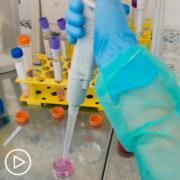
|

|

|
Transcript:
Katherine:
Right. Let’s talk about patient self-advocacy for a moment. Patients can sometimes feel like they’re bothering their healthcare team with their comments and their questions. Why is it important for patients to speak up when it comes to symptoms and side effects?
Dr. Gupta:
Yeah, I think the patients have to be their own advocates, right? Unless they do tell their team about what they are going through, many times action will not be taken unless they’re actually seeing their team in real-time.
And sometimes that visit may not be happening for months so it’s very important to never feel that you’re bothering the teams. And nowadays, with all these electronic ways where patients can communicate with their teams, I think patients are very aware that they can send a MyChart message, for example, and someone will get back to them within a day. So, I think that is really important and the way they can communicate with their teams has also evolved.
Katherine:
How do you think patients can feel confident in speaking up and becoming a partner in their own care?
Dr. Gupta:
I think they have to tell their doctors during their visit that they would like to – whatever their expectations are and what they would like their teams to do to fulfill those expectations.
I think that’s the best way I can say this. That they should always speak up no matter what and if they feel that their concerns about treatment are not being heard, then they should let their treatment teams know and ask what alternative treatments there may be. Or, if their life goals have changed, sometimes patients want to get aggressive treatment and sometimes they just don’t want to go through it anymore. They should let their teams know so, adequately; the goals of care can be modified.
Katherine:
Right. If a patient isn’t feeling confident with their treatment plan or their care, should they consider a second opinion or consulting a specialist?
Dr. Gupta:
Absolutely. I think every patient has a right to consult a second opinion or get second opinions, or even more opinions if they want to make the right decision. Many times, patients are told about one treatment option, and then they want to know, “Well, what alternative options do I have?” “What if I really don’t want my bladder out?” “Is there anything else that can be done?” So, they should be seeing a radiation oncologist in that case.
I think the way we can really make a difference and offer multidisciplinary care is to have the patient see a surgeon, a radiation oncologist, and a medical oncologist. That’s true multidisciplinary care for anybody with localized disease. For metastatic disease, we have a lot of options and usually medical oncologists are the ones who manage it.
Patients can always get second opinions if they feel they want to do something less or more aggressive.
Katherine:
What advice to have for patients who may be nervous about offending their current doctor by getting a second opinion?
Dr. Gupta:
That’s a great question, Katherine, and I know a lot of patients feel that their doctors may feel offended, but in my experience when – if my patients are not local or they – I actually encourage them to go get second opinions and even make referrals to places which may have trials if we don’t have that. It’s always good to have the patients be able to decide and I don’t think nowadays doctors take offense if patients want to get another opinion. In fact, we try to collaborate with our community oncologists.
Where, let’s say patients are currently being treated and they come to us to discuss trials or just to discuss if they’re on the right track. We reassure them and reach out to the community doctors that – yes, we totally agree with what the patient is doing, and these are some other options down the line. And, with the advent of virtual health it’s really become a lot more collaborative because patients are still getting treated locally. When the have their scans and have questions they can schedule a virtual appointment with their doctors in institutions where we have more treatment options like trials.
Katherine:
Dr. Gupta, if patients want to learn more about bladder cancer, or if their families want to learn more what are some credible resources that you would send people to?
Dr. Gupta:
Yeah, I think it’s always good to get credible information than just Googling things which may or may not be true. Bcan.org is a very powerful resource that is a Bladder Cancer Advocacy Network, and as the name implies it’s for the patients, made by bladder cancer advocates.
That’s one of the resources that we highly recommend. Then there’s the resource that you all are working on. So, I think these collectively are the best sources of information which patients should try to stick to.
Katherine:
Right. That’s good advice. To close, what would you like to leave our audience with? What are you hopeful about?
Dr. Gupta:
I think I would like to say that there’s a lot of good information, there’s a lot of advocacy resources. Patients should try to get their information from these verified sources and bring it to their care teams. And never hesitate to reach out for whatever they need during their diagnosis and treatment phase. Always ask questions. Ask about clinical trials. Ask about alternative options. That’s what I would leave the message to be.
Katherine:
Thank you so much for joining us today, Dr. Gupta. We really appreciate it.
Dr. Gupta:
Thank you, Katherine.
Emerging Approaches in Bladder Cancer Treatment
Emerging Approaches in Bladder Cancer Treatment from Patient Empowerment Network on Vimeo.
Dr. Shilpa Gupta of the Cleveland Clinic shares a promising update in bladder cancer treatment and research, including the benefits of patient participation in clinical trials.
Dr. Shilpa Gupta is the Director of the Genitourinary Medical Oncology at Taussig Cancer Institute and Co-Leader of the Genitourinary Oncology Program at Cleveland Clinic. Dr. Gupta’s research interests are novel drug development and understanding biomarkers of response and resistance to therapies in bladder cancer. Learn more about Dr. Gupta, here.
See More From The Pro-Active Bladder Cancer Patient Toolkit
Related Programs:

The Importance of Patient Self-Advocacy in Bladder Cancer Treatment |

|

|
Transcript:
Katherine:
So, Dr. Gupta, are there emerging approaches for treating bladder cancer that patients should know about?
Dr. Gupta:
Yes, absolutely. I would say that the field is so rife with so many different treatment approaches and ways to offer more personalized medicine. We know, for example chemotherapy followed by surgery has been the gold standard, but we have seen data that there are certain genes in some patients’ tumors which may predict how well they will respond and potentially we could avoid a life-changing surgery like cystectomy.
And we have trials with immunotherapy adding to chemotherapy in bladder preservation approaches along with radiation. So, these are some of the new work that’s been done. Approaches to intensify the effect of BCG in newly diagnosed non-muscle invasive bladder cancer patients are also ongoing. Then, in the metastatic setting, we have so many treatment options that have become approved in the last couple of years, now the goal is, well, how to sequence the therapies best for the patient and whether in the front-line therapy we can actually get rid of chemotherapy.
Some of these antibody drug conjugates and immunotherapy combinations are proving to be very effective and the hope is that one day patients may not need chemotherapy because we have chemo-sparing regimens. So, there’s a lot going on and I think the progress has been tremendous in the past few years.
Katherine:
Some patients may be fearful when it comes to clinical trials. So, what would you say to someone who might be hesitant to consider participating in one?
Dr. Gupta:
I would say there’s a lot of misconceptions out there that going on a trial is like being a guinea pig or you get a placebo. For the most part, patients are getting active drugs whenever possible. The only time where we have placebo-controlled trials is if, for that particular setting, there is no approved treatment. But I think patients should get all the information from their doctors and the study teams about the pros and cons.
Many times, it’s about – you could do the study because the patients meet the criteria and are fit to do it and if they wait for later, they may not be eligible anymore for whatever reasons.
I always put it this way, that standard of care therapies will still be available, but studies are sometimes with a tight window and tight criteria. So, I think patients should know that all these studies that are out there are very ethical and use the best possible control arm. So that even if they don’t get that experimental drug, they still get what is the standard of care unless it is something really being compared to nothing.
Understanding Common Bladder Cancer Treatment Side Effects
Understanding Common Bladder Cancer Treatment Side Effects from Patient Empowerment Network on Vimeo.
Dr. Shilpa Gupta of the Cleveland Clinic reviews the most common side effects of bladder cancer therapies.
Dr. Shilpa Gupta is the Director of the Genitourinary Medical Oncology at Taussig Cancer Institute and Co-Leader of the Genitourinary Oncology Program at Cleveland Clinic. Dr. Gupta’s research interests are novel drug development and understanding biomarkers of response and resistance to therapies in bladder cancer. Learn more about Dr. Gupta, here.
See More From The Pro-Active Bladder Cancer Patient Toolkit
Related Programs:

The Importance of Patient Self-Advocacy in Bladder Cancer Treatment |

|

|
Transcript:
Katherine:
I imagine side effects vary among patients. What side effects should someone undergoing treatment be aware of?
Dr. Gupta:
Yeah, and that also depends on what kind of treatment they’re getting, Katherine. So, if somebody’s getting chemotherapy, some of the usual chemotherapy related side effects.
Again, it depends on what chemotherapy they are getting, but usually it’s nausea, vomiting, peripheral neuropathy, hair loss, low count, so we try to prevent their counts from going down to prevent infection. If they’re undergoing a local therapy like BCG, they may get irritation in the bladder, something called urinary tract infections can happen, or just an inflammatory state.
Immunotherapy is not as hard as chemotherapy, any day it’s easier but it can cause some rare and infrequent side effects because the immune system can turn against other organs which can sometimes be life threatening or fatal. That could be inflammation of the lung, of the colon, of the different organs in the brain, of the thyroid gland, of muscles, of heart. It can be pretty much anything. We educate the patients accordingly for that.
And, as far as the newer antibody drug conjugates are concerned, they can cause neuropathy or low counts, hair loss. So, every treatment depending on what treatment we’re choosing has a different treatment side – related toxicity profile and we go about reducing or modifying doses as we go along treating the patient.
Current Treatment Approaches for Bladder Cancer
Current Treatment Approaches for Bladder Cancer from Patient Empowerment Network on Vimeo.
Dr. Shilpa Gupta provides an overview of available bladder cancer treatment approaches and discusses the factors that impact therapy decisions.
Dr. Shilpa Gupta is the Director of the Genitourinary Medical Oncology at Taussig Cancer Institute and Co-Leader of the Genitourinary Oncology Program at Cleveland Clinic. Dr. Gupta’s research interests are novel drug development and understanding biomarkers of response and resistance to therapies in bladder cancer. Learn more about Dr. Gupta, here.
See More From The Pro-Active Bladder Cancer Patient Toolkit
Related Programs:

The Importance of Patient Self-Advocacy in Bladder Cancer Treatment |

|

|
Transcript:
Katherine:
You’ve touched upon treatment options but let’s walk through the treatment approaches for bladder cancer and who they might be right for, and I’d like to start with surgery. Who would be a good candidate for surgery?
Dr. Gupta:
I think patients who are otherwise fit, that is, they have good performance status, don’t have a lot of cardiac or other comorbidities, are not very obese, and of course have to be fit for any major procedure are usually considered good surgical candidates. But, as far as – In terms of staging, the patients with stage I, if BCG does not work in them or immunotherapy doesn’t work, they are recommended surgery if they are good candidates.
If they are not good candidates, we then – our role as medical oncologists is to offer other systemic therapies. As far as stage II cancer is concerned, the gold standard has been chemotherapy, followed by surgery but that’s the gold standard.
It may not apply for every patient. Depending on how fit patients are. Are they – we don’t usually just go by their chronological age but how fit they are? What are their comorbidities? If surgery is going to be a big burden for them moving forward, then we do talk about radiation and chemotherapy and other bladder preservation approaches.
Katherine:
What about immunotherapy and targeted therapies? Who would you use those on?
Dr. Gupta:
Well, since the advent of immunotherapies back in 2016 they’ve really – we’ve made a lot of progress and changed the way treat bladder cancer and the overall survival has improved by leaps and bounds with all these drugs.
Immunotherapy now plays a role in different stages. It is approved for superficial or non-muscle invasive bladder cancer if, let’s say, BCG doesn’t work. In muscle invasive disease we have along with others shown that immunotherapy is safe and effective, although it is not yet FDA approved, so there is a lot of clinical trials going on to prove its superiority in combination and by itself.
And, in metastatic disease or locally advanced disease immunotherapy plays a huge role for patients who have either disease recurrence after chemotherapy or are not good candidates for any chemotherapy.
I would say that immunotherapy is a very big – plays a very big role in the treatment. Unfortunately, not everybody responds to immunotherapy only about 20 to 25 percent of patients do.
That’s why we have these other novel therapies that have been coming through, like antibody drug conjugates, namely enfortumab vedotin, sacituzumab govitecan, and targeted therapy in the form of an FGFR inhibitor was the first targeted therapy that was approved a couple of years ago for patients who have a mutation in their tumors.
That’s really personalized medicine for those patients.
Katherine:
Right. What about biomarker testing? Does the presence of certain biomarkers impact certain treatment options?
Dr. Gupta:
That’s a great question and we’re all striving to find the perfect biomarker in bladder cancer. In the past we thought that expression of PD-L1 in the tumor cells and immune cells is a marker of how well the immunotherapy will work, but we have learned over the past couple of years that biomarker has turned out to be quite useless.
We don’t really need that to guide our treatment. We’re still depending on clinical biomarkers for immunotherapy use or chemotherapy use. I would say that the biomarker question is still being looked at and eventually I would say it’s not going to be one biomarker, but a composite of several different biomarkers that we will be able to use comprehensively.
What Are Treatment Goals for Bladder Cancer?
What Are Treatment Goals for Bladder Cancer? from Patient Empowerment Network on Vimeo.
Dr. Shilpa Gupta from the Cleveland Clinic defines bladder cancer treatment goals and shares advice for patients when making treatment decisions with their healthcare team.
Dr. Shilpa Gupta is the Director of the Genitourinary Medical Oncology at Taussig Cancer Institute and Co-Leader of the Genitourinary Oncology Program at Cleveland Clinic. Dr. Gupta’s research interests are novel drug development and understanding biomarkers of response and resistance to therapies in bladder cancer. Learn more about Dr. Gupta, here.
See More From The Pro-Active Bladder Cancer Patient Toolkit
Related Programs:
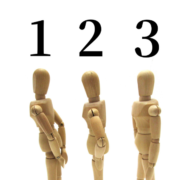
|
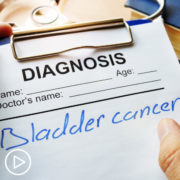
|

|
Transcript:
Katherine:
Now that we know more about bladder cancer and how it’s staged, let’s move on to treatment. What are the goals of treatment for bladder cancer?
Dr. Gupta:
The goals of treatment depend on what stage the disease is in. For patients who have non-muscle invasive cancer, we use the oldest immunotherapy that is out there called BCG.
The goal is to prevent recurrence and prevent progression to muscle invasion. Many times, despite treatment that may not happen and that’s when patients need their bladder out. I would say that the goal for treatment for localized disease is to cure the disease and prevent distant recurrences and prolong survival. The goals of treatment with metastatic disease are to improve survival and delay progression-free survival, improve response rates.
Katherine:
What do you feel is the patient’s role in treatment decisions?
Dr. Gupta:
I think patients are the key we center everything around for treatments, right? There are so many treatment options and it’s really very difficult to make a decision without getting the patient’s perspective.
What are the patient’s goals from their lives and what they see the cancer as? For example, if somebody has muscle-invasive disease and the cancer is not very big and the patient has the option of getting the bladder removed which means they will have a stoma for the rest of their lives, or they can reclaim their bladder after undergoing radiation and chemotherapy and still undergo cystoscopies, or looking inside the bladder, every three months.
Some patients just don’t want a stoma no matter what, so we try to tailor the therapies according to that and a lot, many times, patients – these are older patients, they may have a lot of comorbidities, they may not be the most fit patients to undergo a big procedure, so we have to tailor it according to the patient. I think the patient’s role is what we all strive to go by.
What is a good treatment for one patient may not be a good treatment for another patient.



